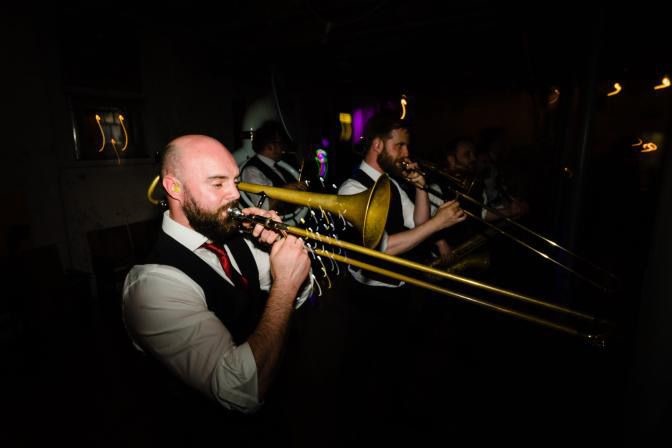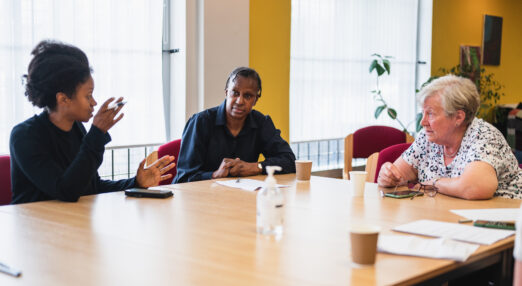Tinnitus and being social
Your social life doesn’t need to stop if you develop tinnitus. Here are some tips for changes you can make.
When you have tinnitus, socialising in noisy places may be the last thing you want to do.
Very quickly you can find yourself refusing invitations and avoiding social situations. It can be very easy to become isolated and withdrawn. But it doesn’t have to be like this.
Here are some ideas about how to reclaim your social life. With planning and some coping strategies, you can return to the activities that bring you joy!
You’re not alone
Some friends have organised a night out. Your heart says “go”, but you worry that the venue will be noisy. You know you’ll have to concentrate to hear and will sit back, smiling and nodding vaguely. You’ll feel excluded and more alone than if you’d said no to the invitation. Then by the end of the night, you’ll have a headache from all the effort, and your tinnitus will be screaming. So you say, “no thanks ” and make an excuse.
If that sounds familiar, you’re not alone. Our recent survey discovered that 4 in 10 people with tinnitus have changed their social lives because of the condition.
Be honest
Tinnitus is often an invisible condition. People around you might not realise or remember that you have it. Be honest with those around you.
Most people are understanding once they know. If someone is curious and wants to know more about what tinnitus can be like, you could share this video of people’s stories with them.
The acoustics in a restaurant can make a big difference to the experience of someone with hearing loss, tinnitus or other sound sensitivity disorders. Restaurants with upholstered chairs, low ceilings, carpets and generous curtains will be easier on the ear than places with stark benches and tiled floors and walls. Soft furnishings absorb sound.
Could you suggest that your event happens at a venue with good acoustics? It may be a more pleasant experience for others too.
You could also:
- ask to be seated in a booth or the quietest area away from the bar, sound speakers or open kitchen
- ask staff to turn down the music if it is overpowering
- switch places with someone to get the best possible spot for your hearing – if your tinnitus is one-sided, have the ‘good’ ear nearest to people
- consider making a booking outside of peak times so the restaurant is quieter. Service is often better then, too!
Parties can be hard work if you have tinnitus or a hearing problem. There’s often loud music, and with everyone talking, it creates a confusing wall of sound.
The same tips about acoustics and reducing the distance from loud sounds apply. You might also want to move outside or to a quieter room if you can. If the party is very noisy with loud music, wearing earplugs can help to protect your ears.
Try to focus on one person at a time instead of lots of people in a group. Get as close to the person talking as personal space (and your comfort level) allows.
Walk into the party knowing you won’t hear everything. Give yourself some leeway, relax and let some conversations go by.
Loud background music and sound effects can be hard to cope with at the cinema. Action-adventure films are often the loudest. We recently measured the sound level of an action film as 110dB – shockingly high and well over the safe exposure limit!
You could consider wearing earplugs for the loudest action-adventure films and encourage your companions to do the same to help protect their hearing. You could show them information about safe sound levels to help them make up their minds.
Some cinemas now offer alternative showings of popular films for people with sensory issues. These include subtitled screenings or screenings with lower volume and levels of darkness.
The sound levels at musical events can often exceed safe exposure limits. Not only can this trigger tinnitus in those who don’t currently have it, but it can also make existing tinnitus worse.
These tips will help you protect yourself:
- use earplugs – ones with filters will reduce the volume of the sound without reducing the quality, meaning you can hear the music better
- don’t stand by the speakers or too close to the musicians
- drink plenty of water or other non-alcoholic drinks – ears need good hydration to keep healthy
- take regular breaks away from the sound.
Help and support
Our Tinnitus Support Team can answer your questions on any tinnitus related topics:
- Telephone: 0800 018 0527
- Web chat: – click on the icon
- Email: helpline@tinnitus.org.uk
- Text/SMS: 07537 416841
When it's loud, plug'em!
Find out more about our plug'em campaign - encouraging people to protect their ears in loud environments
Find out more
Latest news
-

Tinnitus Conference 2024
Our annual tinnitus conference will take place online from 23 - 27 September 2024.
Read more
-

New regional support groups
New support groups are launching in Telford, Banbury and Coalville.
Read more
-

The effectiveness and cost-effectiveness of hearing aids for people with tinnitus.
Tinnitus UK are co-applicants with a team from NIHR Nottingham who are planning to examine the effectiveness and cost-effectiveness of hearing aids for people with tinnitus via a large scale randomised controlled trial.
Read more
